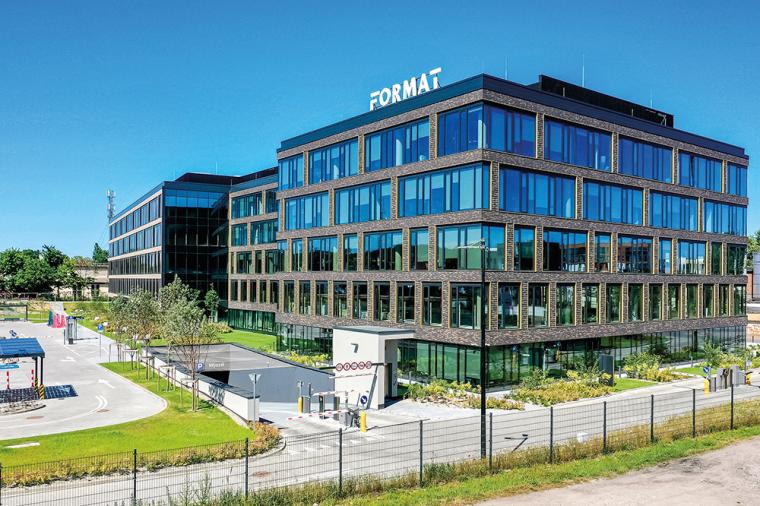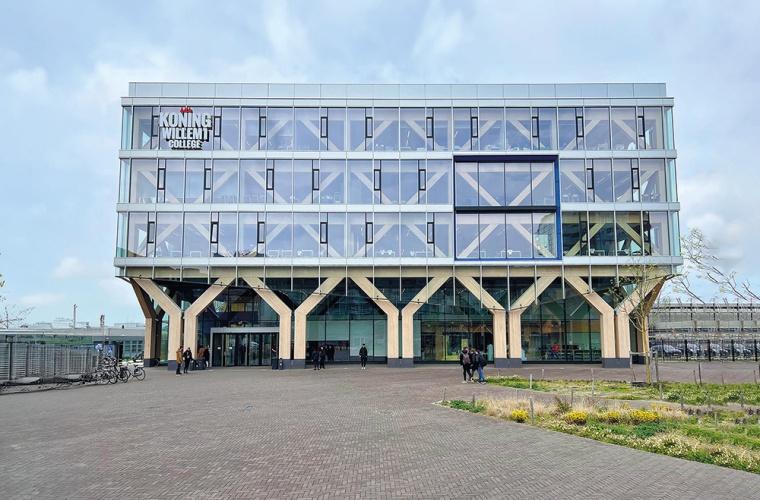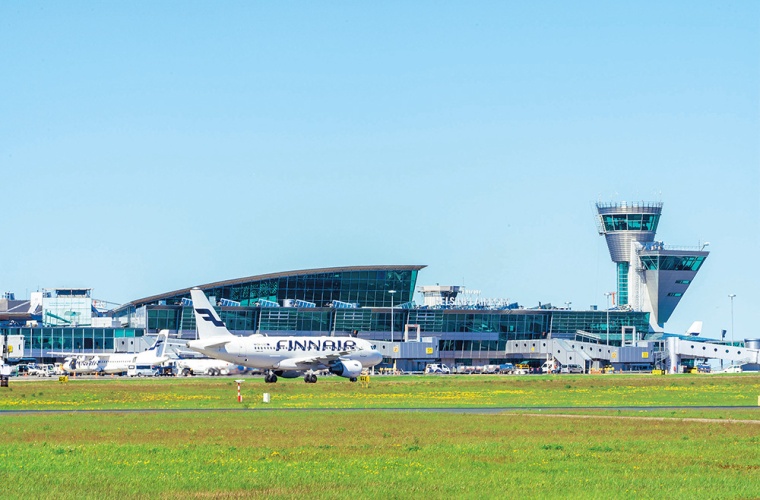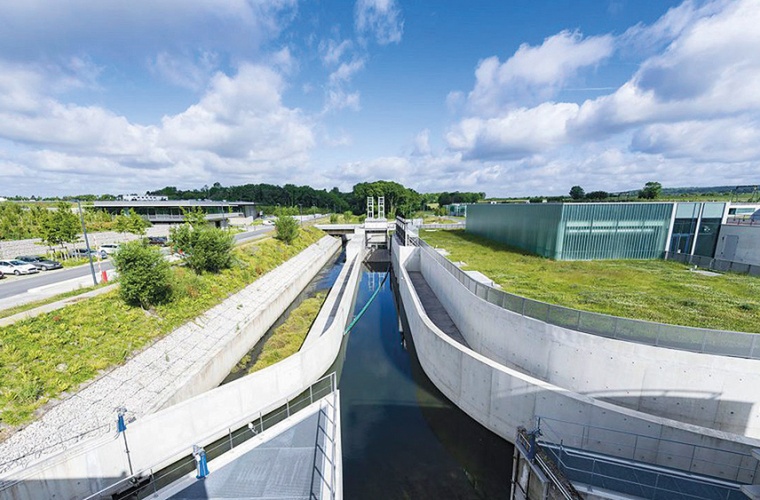Assa Abloy: Future-Proof Access Control
Even though movement into and around homes and workplaces is becoming seamless, security remains as important as ever. Everyone who visits a site needs confidence in a building’s safety, not just in its efficiency and usability. Digitalization provides this reassurance – effectively and efficiently.

Switching mechanical for digital access is a key enabler in the changing way we live and work. Digitalization can help organizations of every size and type to work smarter, collaborate better and maximize the productivity of their existing assets. Connected digital access is a fundamental block of the intelligent building. As analysts Omdia note, “Access control equipment continues to play a crucial role in leading end users to consider a transition to interconnected smart building system architectures.”*
“The building has an increasingly digital future,” says David Moser, SVP and Head of Digital Access Solutions (DAS) at Assa Abloy Opening Solutions EMEIA. ”So it is crucial for all kinds of organizations to make their access control ready for what is ahead – to benefit from the concrete ROIs that digitalizing access can deliver.”
Improved Security
In a world of building management systems that offer a wide range of functionality, security is sometimes considered a given. But faced with constantly emerging and evolving physical security threats, it should never be taken for granted. Building users and managers need the reassurance of a secure access system to go about their working day productively and with peace of mind. As security converges, moving beyond traditional physical access and cyber ‘siloes’, the right digital access solution enables building management teams to define exactly who goes where, and when, across their site or sites.
“We want to phase out the use of keys within our organization,” explains Alex te Pas, functional manager of facilities management information systems at Koning Willem I College in the Netherlands. “We noticed that when employees left, people often forgot to turn in keys or tokens. In the event of an audit, we then have a problem.”
The college chose Assa Abloy wireless digital locks, which were easy to integrate with their access management system. Installation was fast and cable-free. Sensitive rooms were equipped with PINpad digital escutcheons to add extra control. “We wanted to provide our technical rooms with 2-factor authentication, so here we chose locks with PIN code capability,” he adds.
Reliability, Longevity and Trust
The durability of a digital solution has both financial and security implications. Robust hardware and secure software ensure that access solutions require minimal maintenance, for example. Purchasers should already inquire about third-party certifications at the specification stage, including for green building schemes, whether for digital locks, electronic door closing solutions, or for access provision compliance at sensitive locations where additional national and supra-national regulations may apply.
The French Hydreaulys water treatment facility required a time-efficient way to restrict and monitor access to potentially hazardous materials. A digital key-based system from Assa Abloy now allows them to program access individually – and change it when needed. Certified digital cylinders are robust enough for the demanding environment: alongside extreme weather, they resist chemicals and humidity. This reliability saves the time and cost of frequently replacing locks.
“Access control needs flexibility because our organization and management of the site are evolving, and this reliable system is evolving with us,” says Jean-Pascal Chuzel, Deputy Agency Director, Water France – Paris Seine Ouest.
Innovation and Future-Proofing

“An ‘innovative’ solution is not just the access system with the widest range of features and functions,” says David Moser. “Choosing a manufacturer with a track record of innovation, however, gives organizations the confidence that their solution will always prepare them for what is ahead – not just the ‘now’.” So systems should embrace digital openness and customizability, which in turn provide the flexibility that genuinely future-proofs access management.
Barcelona-based build-to-rent provider Becorp used mechanical security in the past – and are aware of its advantages and its drawbacks. For a new development, they targeted a convenient keyless digital solution: residents unlock doors using secure mobile keys in a smartphone app. This also saves managers’ time, especially during property handovers.
Their Assa Abloy digital solution provides locking with deadbolt projection and real-time management, so staff can check the live status of any access point, open doors remotely, or lock down in an emergency. “Physical key management for any large development puts severe pressure on operational costs. Choosing wireless locks and mobile management helps us to minimize them,” explains Xavier Casals, Becorp’s Engineering Director.
Time-Saving Daily Convenience
Much more is possible beyond just small-scale savings in time and effort. Operations are streamlined for building and security managers when employees, contractors, and temporary visitors can come and go with ease. Digitalizing access provides a concrete ROI that a business can turn into a competitive advantage. For this reason, the most recent edition of the Wireless Access Control Report found the biggest factor driving the switch to mobile digital access was convenience**.
Finavia, operator of Helsinki Airport, were looking for a single system that could incorporate multiple opening types, such as doors with reader-controlled and electromechanical locks, keyless padlocks, and document cabinets. Check-in area cabinet keys alone numbered around 100*** per airline.
A full suite of integrable Assa Abloy digital solutions has streamlined management, and now enable convenient access to padlocks and cabinets, including via smartphone when required. “Safety, functionality, durability, security of supply, and usability were the reasons we chose the Assa Abloy solution,” explains Kari Mäkinen, the airport’s Senior Access Control Specialist.



Sustainability and Energy Efficiency
An ethos of social responsibility should be embedded within any future-proof digital solution. Motives go beyond just altruism – though of course, this is important. Incorporating sustainability into an access strategy may also directly benefit the bottom line. Both the business and the environment benefit from reducing power consumption by using innovations such as energy-harvesting technology. Green building certifications show prospective partners and tenants that sustainability is taken seriously.
Gdansk-based developer Torus targets the highest category of LEED certification to meet the demand for greener workspaces. Partnering with Assa Abloy during specification ensured Green Circle documentation and environmental product declarations (EPDs) were to hand. Battery-powered, cable-free door devices at their new sites use less energy during installation and operation than a comparable wired solution. Their door readers’ intelligent power mode (IPM) saves 41 % in energy compared to equivalent readers without this configuration. “The lack of wiring significantly reduces materials use, reduces costs, and ensures quick installation,” says Torus’ Roman Sokolowski.
Getting Access Ready for What Is Ahead
“Assa Abloy can help you to digitalize and truly future-proof access at almost any kind of site or building,” adds David Moser. “Our vast range of innovative, reliable, convenient solutions brings digital access to wherever it is needed, to different building sizes and types, historic properties, or new builds, and in different industries and settings, from corporate offices and manufacturing plants to universities, homes, hospitals, and many other places.”
“These access solutions showcase the value of the digital transition and can be tailored to meet almost any individual business need or goal. We are happy to share our expertise to help you continue to thrive in our changing, digitalizing world.”
* www.ifsecglobal.com/access-control/the-central-role-of-access-control-to-the-transition-to-smart-buildings
** Download the full report at www.assaabloy.com/az/en/campaigns/2023-wac-report
*** https://git-sicherheit.de/en/products/assa-abloy-outfits-danish-school-with-new-wireless-locking-system
most read


Integrated and Futureproof: Traka’s Next Chapter
Interview with Stefni Oliver on Traka’s Vision for the Future

Is Your Venue Ready for Martyn’s Law?
Martyn’s Law demands stronger security by 2027. Is your venue prepared to protect and respond?

Assa Abloy's battery-powered Aperio KL100 secures lockers
Boost workplace security and operational flexibility by securing more than just doors.

GIT SECURITY AWARD 2026 - The winners have been announced!
GIT SECURITY AWARD 2026: The best safety and security solutions of the year - now an overview of all winners








